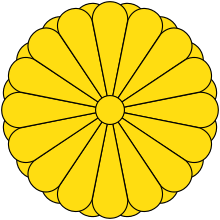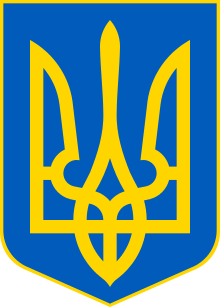Japan–Ukraine relations
 |
|
Japan |
Ukraine |
|---|---|
Japanese-Ukrainian relations are formal diplomatic relations between Japan and Ukraine. Japan extended diplomatic recognition to the Ukrainian state on December 28, 1991, immediately after the breakup of the Soviet Union and full diplomatic relations were established on January 26, 1992. Ukraine maintains an embassy in Tokyo,[1] and Japan maintains an embassy in Kiev.[2]
Ukrainian President Leonid Kuchma made a state visit to Japan in March 1995. President Viktor Yushchenko subsequently visited in July 2005, where he discussed among other things the Chernobyl clean-up program.[3]
From the beginning of 2008, Ukrainian-Japanese relations have improved significantly, with regular exchanges between the two countries sponsored by groups such as InvestUkraine, the Ukrainian-Japanese center and the Japan External Trade Organization.[4] On March 25, 2009, Yulia Tymoshenko, Prime Minister of Ukraine, visited Japan and met with Taro Aso, Prime Minister of Japan. In a joint statement, they welcomed cooperation in trade, investment and energy conservation, and discussed the effect of the recent economic crisis among other topics.[5]
The balance of trade between Ukraine and Japan is heavily weighed in favor of Ukraine, with Japan exporting steel pipe and automobiles and importing aluminum and food products.[6] In a different form of trade, on July 15, 2008 Japan, a signatory to the Kyoto Protocol, agreed to buy greenhouse-gas emission allowances from Ukraine to reach a target set under the U.N. climate-change treaty.[7] The deal was finalized on March 26, 2009[8]
Japan also has assisted Ukrainian educational and cultural institutions financially in the amount of more than US$4.3 million in the 1998 till 2009 period. Moreover, Japan provided Ukraine with grants of more than $151.8 million.[9]
On October 30, 2011, the Japanese government raised the amount of workers at the Japanese embassy in Kyiv from 30 to 36, in order to learn more about how Ukraine was dealing with the Chernobyl Nuclear Disaster, as Japan is still in the wake of the Fukushima Daiichi Nuclear Disaster.
Japan has reflected that they are a staunch ally to Ukraine in the midst of the 2014 Crimean Crisis. The Japanese government placed sanctions on Russia. Tokyo criticized Russia, saying that Russia is violating the territorial integrity and sovereignty of Ukraine. [10] In addition, the Japanese government has stated that they are willing to provide Ukraine with 1.5 billion USD in financial aid when Kyiv agrees to accept and enact various IMF reforms.[11]
See also
References
- ↑ "Ukrainian embassy in Tokyo". Ministry for Foreign Affairs of Ukraine. Retrieved 2009-04-22.
- ↑ "Embassy of Japan in Ukraine". Embassy of Japan in Ukraine. Retrieved 2009-04-22.
- ↑ "Japan, Ukraine commend UNDP Chornobyl programme". United Nations Development Programme. Retrieved 2009-04-22.
- ↑ "MEETING WITH THE REPRESENTATIVES OF JAPAN EXTERNAL TRADE ORGANIZATION". InvestUkraine. Retrieved 2009-04-22.
- ↑ "Japan-Ukraine Joint Statement". Ministry of Foreign Affairs of Japan. Retrieved 2009-04-22.
- ↑ "Fact Sheet on Japan-Ukraine relations (Economic Relations)". Embassy of Japan in Ukraine. Retrieved 2009-04-22.
- ↑ "Japan to Buy Emission Allowances From Ukraine; Seeks Czech Deal". Bloomberg. 2008-07-15. Retrieved 2009-04-22.
- ↑ "Japan, Ukraine Hail Carbon Credits Deal". Carbon Offsets Daily. 2009-03-26. Retrieved 2009-04-22.
- ↑ Japan extends grant for Chornobyl museum, Ukrinform (September 23, 2009)
- ↑ http://abcnews.go.com/International/wireStory/japan-imposes-sanctions-russia-crimea-22950520
- ↑ http://www.kyivpost.com/content/ukraine/japan-could-provide-15-bln-aid-to-ukraine-when-country-agree-reform-package-with-imf-340762.html

